The Quran-The Miracle
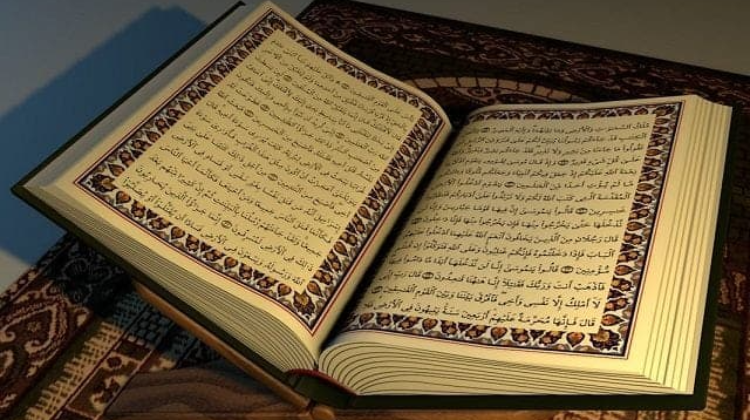
The Quran-The Miracle
Up to this point, we have discussed a fundamental history of humanity. This fundamental history reaches a critical turning point approximately fourteen hundred years ago.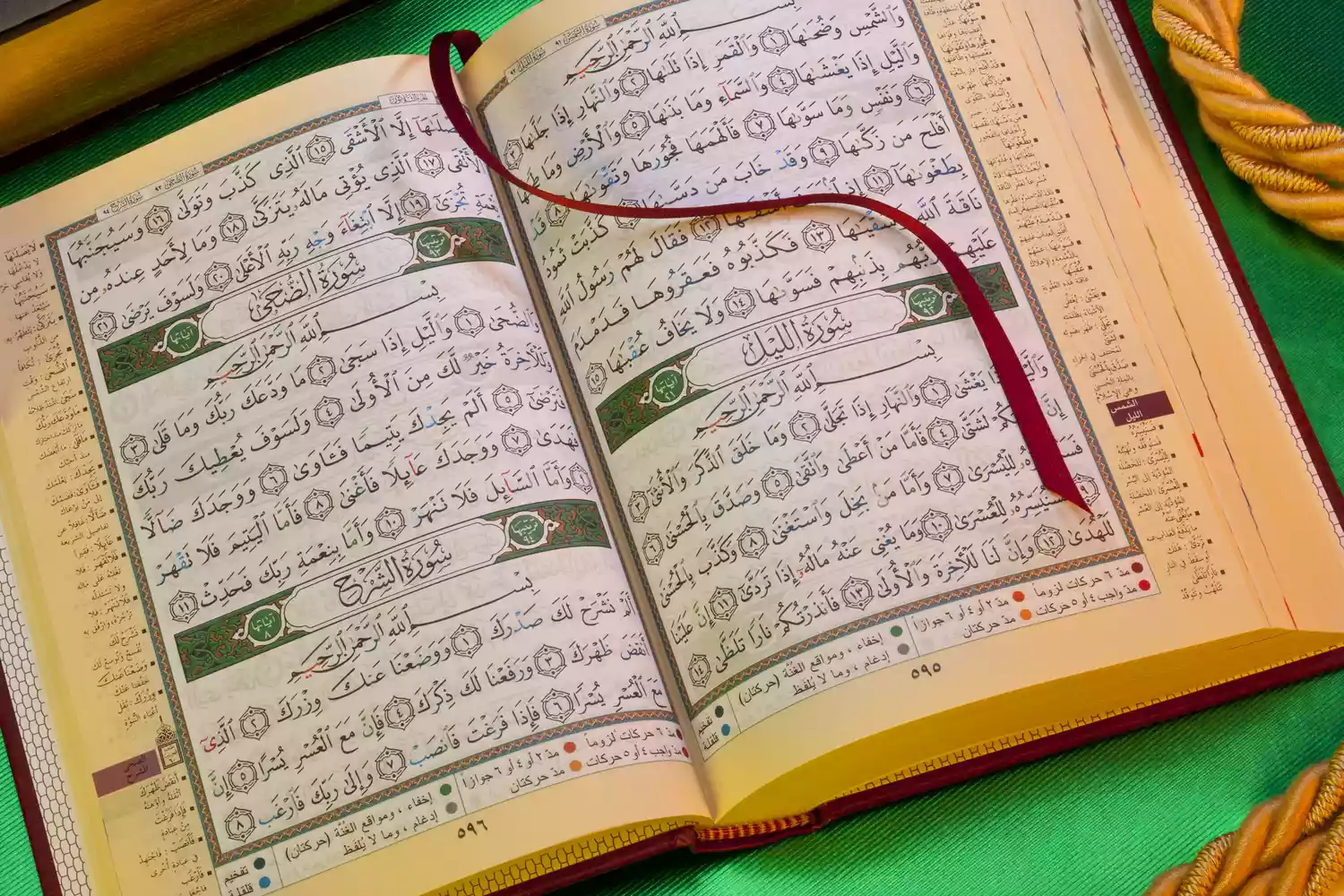 Fourteen hundred years ago, an event occurred in human history that not only transformed the then-known world but also continues to influence humanity's entire future. In one sense, this event was not new because, throughout the ages, one Messenger after another came with the Creator's message and life system. However, this time, there were several significant exceptions. The main exceptions are:
Fourteen hundred years ago, an event occurred in human history that not only transformed the then-known world but also continues to influence humanity's entire future. In one sense, this event was not new because, throughout the ages, one Messenger after another came with the Creator's message and life system. However, this time, there were several significant exceptions. The main exceptions are:
(a) Previous life systems (religions) were sent for specific, limited human societies. The foundation of monotheism remained constant, with other laws and rules adapting to the problems and demands of time and place. This time, it came for all of humanity. The Creator ensured that this time there would be no laws or rules dependent on time, place, or circumstance. This time, the message was completely universal.
(b) This message came as the final life system for humanity, meaning no new life system would come from Allah after this. The Creator ensured that this final system would contain no laws or directives that would become obsolete over time—meaning it would be eternal.
(c) Each previous holy book was distorted by humans to suit their own interests. The Creator knew that this final book would also face attempts at distortion. Therefore, this time, He took it upon Himself to protect it from any corruption.
(d) The person through whom Allah sent this final life system was made an ideal model for all of humanity. Since he was made the model for all humanity, he had to be made perfect—something the Creator had never done for any other human or even any other Messenger.
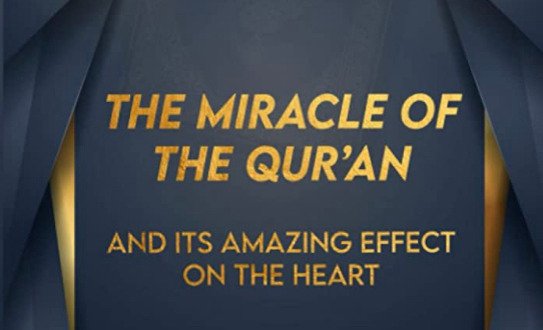 Like all other Messengers, this one faced intense opposition from the leaders of the existing religions. The question arose: what proof or sign do you have that you are indeed a Messenger sent by Allah? Allah knew this question would arise, as it had for every Messenger, and He provided each Messenger with signs, or miracles, to confirm their truth. It should be noted that the Quran does not use the term "miracle" but instead uses the term "sign" (ayah), which essentially means the same thing: a special thing that serves as evidence of the truth. In this sense, Allah describes the verses of the Quran as signs. Each verse of the Quran is a sign of the Creator and proof of the truth of His messenger. Without the Creator and the messenger through whom these signs were revealed, where did these verses come from? In this sense, many other things are also described as signs of Allah’s existence and truth, such as natural laws, the rotation of the sun and moon, the changing of day and night, and so on. These are all signs of the Creator's immense power, just like the miracles given to previous Messengers—such as Isa (PBUH) bringing the dead back to life, Musa (PBUH) parting the sea, and the other miracles performed by the Messengers.
Like all other Messengers, this one faced intense opposition from the leaders of the existing religions. The question arose: what proof or sign do you have that you are indeed a Messenger sent by Allah? Allah knew this question would arise, as it had for every Messenger, and He provided each Messenger with signs, or miracles, to confirm their truth. It should be noted that the Quran does not use the term "miracle" but instead uses the term "sign" (ayah), which essentially means the same thing: a special thing that serves as evidence of the truth. In this sense, Allah describes the verses of the Quran as signs. Each verse of the Quran is a sign of the Creator and proof of the truth of His messenger. Without the Creator and the messenger through whom these signs were revealed, where did these verses come from? In this sense, many other things are also described as signs of Allah’s existence and truth, such as natural laws, the rotation of the sun and moon, the changing of day and night, and so on. These are all signs of the Creator's immense power, just like the miracles given to previous Messengers—such as Isa (PBUH) bringing the dead back to life, Musa (PBUH) parting the sea, and the other miracles performed by the Messengers.
When the last Messenger (PBUH) was sent by Allah, his signs had to be different from those of the previous Messengers because his mission was for all of humanity, not just a specific community. The miracles of previous Messengers were seen by their specific nations because they were sent only for those people. The miracles of Musa (PBUH) were seen by the people of Egypt, and the miracles of Isa (PBUH) were seen by the Israelites. However, the miracles of the final Messenger had to be universal and eternal, seen and understood by everyone, regardless of time and place.
Allah sent His messengers to the world with miracles, which were extraordinary acts that seemed impossible—hence, supernatural. These miracles were of various kinds, depending on the society, environment, and the accusations made against the Messengers. Additionally, the type of miracle given to a Messenger depended on the level of cultural and intellectual development of the society he was sent to. While we do not have reliable information about the miracles given to the very ancient Messengers, the miracles of the relatively modern Messengers are well-documented. For example, Musa (PBUH) faced the magicians of Egypt because magic was a dominant cultural practice there. Musa’s miracles, such as turning his staff into a serpent that swallowed the other serpents, the plagues of locusts, frogs, and turning the river’s water into blood, were extraordinary even for the greatest magicians.
depending on the society, environment, and the accusations made against the Messengers. Additionally, the type of miracle given to a Messenger depended on the level of cultural and intellectual development of the society he was sent to. While we do not have reliable information about the miracles given to the very ancient Messengers, the miracles of the relatively modern Messengers are well-documented. For example, Musa (PBUH) faced the magicians of Egypt because magic was a dominant cultural practice there. Musa’s miracles, such as turning his staff into a serpent that swallowed the other serpents, the plagues of locusts, frogs, and turning the river’s water into blood, were extraordinary even for the greatest magicians.
Then came Isa (PBUH) with miracles that did not involve competing with magicians but rather healing and resurrection, which were necessary to convince the misguided Israelites. His miracles included speaking as an infant, restoring sight to the blind, resurrecting the dead, and feeding thousands with a few loaves and fishes. These miracles were meant to prove his Messengerhood, yet the Jewish leaders, out of jealousy and stubbornness, rejected him and reported him to the Roman authorities, who sentenced him to death. However, Allah raised Isa (PBUH) to another realm before the crucifixion, and his betrayer was made to resemble him and was crucified instead.
Then came the crown jewel of humanity, the greatest human of all time, the final Messenger Muhammad (PBUH). This time, the circumstances were different. First, all previous messengers had brought a way of life (Deen) for their specific nations, tailored to their problems and needs. This time, Muhammad (PBUH) brought a complete system of life, including laws and penalties, for all of humanity. Second, he was the last messenger, and no other Messenger would come after him. The miracles of previous Messengers were shown to their respective communities. Those miracles were temporary, meant for specific people at specific times. Once the Messengers and their nations passed, the miracles were no longer seen.
But for the final Messenger, a temporary miracle would not suffice. His miracle had to be permanent and visible to all of humanity until the end of time. Was such a miracle possible? Did the unparalleled model of humanity, Muhammad (PBUH), present such a miracle? Yes, he did.
When asked about his miracle, Muhammad (PBUH) replied, "My miracle is the Quran" (Hadith). Although the Quran is not his only miracle, it is indeed his greatest. This requires some explanation.
 First Part of the Explanation: Historians, both Muslim and non-Muslim, agree that the Quran was revealed over twenty-three years, from the time Muhammad (PBUH) was forty until his death at sixty-three. It was revealed gradually, sometimes a little, sometimes more, and the entire book was completed within these twenty-three years. The Messenger stated that not a single letter of it was his; every letter and word was the Creator's message. The life system, laws, penalties, commands, and prohibitions within it were for all of humanity. He was merely the bearer of the message. These verses were written down as soon as they were revealed, and many people, including the Messenger himself, memorized them. The Messenger and his followers took great care to ensure that nothing else, not even his own words, mixed with the words of the Quran. Such precautions were taken that when some followers attempted to write down the Messenger’s sayings and teachings, he forbade it to prevent any accidental mixing with the Quranic verses. Later, when the possibility of mixing was eliminated, he permitted his sayings to be written, which are now known as Hadith. The Creator named these verses "ayat," meaning signs or clear evidence.
First Part of the Explanation: Historians, both Muslim and non-Muslim, agree that the Quran was revealed over twenty-three years, from the time Muhammad (PBUH) was forty until his death at sixty-three. It was revealed gradually, sometimes a little, sometimes more, and the entire book was completed within these twenty-three years. The Messenger stated that not a single letter of it was his; every letter and word was the Creator's message. The life system, laws, penalties, commands, and prohibitions within it were for all of humanity. He was merely the bearer of the message. These verses were written down as soon as they were revealed, and many people, including the Messenger himself, memorized them. The Messenger and his followers took great care to ensure that nothing else, not even his own words, mixed with the words of the Quran. Such precautions were taken that when some followers attempted to write down the Messenger’s sayings and teachings, he forbade it to prevent any accidental mixing with the Quranic verses. Later, when the possibility of mixing was eliminated, he permitted his sayings to be written, which are now known as Hadith. The Creator named these verses "ayat," meaning signs or clear evidence.
The distinction between the Quran and previous scriptures becomes clear here. In previous scriptures, Allah’s direct words were mixed with the sayings and actions of the Messengers. For example, in the Bible, the words of Allah and the narratives of various Messengers are so intertwined that separating them today is nearly impossible. In the New Testament, the biography of Jesus (PBUH) was written by four people who never met him, resulting in discrepancies and a blend of divine words with personal opinions. Christian scholars have attempted to correct this but found it impossible to extract only the words of Allah. Instead, they created the Red Letter Bible, where they printed Jesus’s words in red ink, though these words are still not directly attributed to Allah but to Jesus (PBUH) as per the authors’ beliefs.
If the verses of the Quran (only Allah’s words) and the Hadith (the Messenger’s sayings and actions) were mixed and included in one book, the Quran would become indistinguishable from other religious texts, which is not the case. Due to the Messenger’s meticulous attention and vigilance, Allah’s words remained completely separate, pure, and preserved forever. This is the first part of the miracle of the Quran.
The Second Part: There is no doubt among historians, whether domestic or foreign, that Muhammad (PBUH) was illiterate. This illiterate man, over a span of twenty-three years, composed a vast book in fragments, which has been the subject of research by scholars, believers, and non-believers alike for fourteen hundred years, resulting in thousands of books. Many eminent scholars who researched this book have concluded that it could not be a human creation and eventually accepted Islam. Two renowned scientists this year—one French and one English—have embraced Islam after studying the Quran in the light of modern science. When asked why, they both stated (without any connection between them) that after long-term scientific research, they reached the firm conclusion that this magnificent book could not have been written by a human being. The scientific truths they found in the Quran, some of which were discovered and proven only recently, are astounding. They argued that it was impossible for an illiterate man, even a clever one, fourteen hundred years ago to reveal such scientific facts. Even if he had been the greatest scientist of his time, it would still have been impossible, as those facts were not known then. Therefore, the author of the Quran can only be the all-knowing Creator.
The Third Part: In the Quran, the Creator Allah challenges humanity: if you think this Quran is not My word but that of Muhammad (PBUH), then produce a chapter like it. Call upon all of humanity, use all your knowledge, literature, and poetic skills, and create just one chapter like those in the Quran. The Creator then states that they will never be able to do so. It is important to note that there are short chapters in the Quran made up of only sixteen words. Fourteen hundred years have passed, and to this day, no one has been able to write sixteen words that match the depth of knowledge, literary quality, and eloquence of the Quran. There has been no shortage of attempts to prove that the Quran was authored by Muhammad (PBUH). This challenge was issued fourteen hundred years ago and will remain until the end of time, with no expiration date or conditions. If the Quran were not Allah's word, Muhammad (PBUH) would not have taken such a risk. There have been countless efforts to produce a chapter equal to the shortest chapter of the Quran. None have succeeded, and they never will. Those who tried eventually admitted defeat and did not claim success. Future attempts will also fail.
upon all of humanity, use all your knowledge, literature, and poetic skills, and create just one chapter like those in the Quran. The Creator then states that they will never be able to do so. It is important to note that there are short chapters in the Quran made up of only sixteen words. Fourteen hundred years have passed, and to this day, no one has been able to write sixteen words that match the depth of knowledge, literary quality, and eloquence of the Quran. There has been no shortage of attempts to prove that the Quran was authored by Muhammad (PBUH). This challenge was issued fourteen hundred years ago and will remain until the end of time, with no expiration date or conditions. If the Quran were not Allah's word, Muhammad (PBUH) would not have taken such a risk. There have been countless efforts to produce a chapter equal to the shortest chapter of the Quran. None have succeeded, and they never will. Those who tried eventually admitted defeat and did not claim success. Future attempts will also fail.
The Fourth Part: Allah says in the Quran: "Indeed, it is We who sent down the Quran, and indeed, We will be its guardian." This means that no one will be able to change, omit, or add anything to it. The Quran has remained unchanged since its revelation, and scholars agree that today's Quran is identical to the one recited during the time of the last Messenger Muhammad (PBUH). Recently, a Quran was discovered in Russia, proven to be handwritten by Ali (RA), a close companion of the Messenger. This Quran matches the one we read today in every letter, except for the vowel points added later for pronunciation. No other religious book in the world has remained unaltered; many have been lost or destroyed. The fact that the Quran has remained unchanged for fourteen hundred years is itself a miracle.
A relevant question arises- why did Allah not take the responsibility to preserve the earlier scriptures like the Bible and the Torah? These were also sent by the Creator, as acknowledged in the Quran. The answer lies in the fact that the Quran is His final revelation. Allah knew that earlier scriptures would be distorted, altered, and parts would be lost. He did not take responsibility for preserving them because He knew He would send more Messengers with His messages. But the Quran is the final message for humanity, and if it were distorted, another Messenger would have to be sent, making Muhammad (PBUH) not the last Messenger.
 Let's make this clearer. If a thoughtful Hindu (even though there is no religion strictly called Hinduism, it's actually Sanatan Dharma) is dissatisfied with the current state of his religion and wishes to practice it in its original, unaltered form, he cannot. The Vedas are not as they were when they were revealed. Experts will tell you this. The same goes for the Bhagavad Gita and other texts. For example, Jagadish Chandra Ghosh, a renowned commentator on the Gita, states that ancient religious texts have mostly been altered and expanded. If a devout Christian wants to follow the true form of Christianity, it's impossible because the Bible, in its original language, does not exist. Today's Bibles are translations of a human-authored book. Thus, the true teachings of Jesus (PBUH) are not present. Scholars of the Bible agree. The same scenario would have occurred with Islam if the Quran were not protected by Allah. The Quran remains unaltered because it is the final life system for humanity.
Let's make this clearer. If a thoughtful Hindu (even though there is no religion strictly called Hinduism, it's actually Sanatan Dharma) is dissatisfied with the current state of his religion and wishes to practice it in its original, unaltered form, he cannot. The Vedas are not as they were when they were revealed. Experts will tell you this. The same goes for the Bhagavad Gita and other texts. For example, Jagadish Chandra Ghosh, a renowned commentator on the Gita, states that ancient religious texts have mostly been altered and expanded. If a devout Christian wants to follow the true form of Christianity, it's impossible because the Bible, in its original language, does not exist. Today's Bibles are translations of a human-authored book. Thus, the true teachings of Jesus (PBUH) are not present. Scholars of the Bible agree. The same scenario would have occurred with Islam if the Quran were not protected by Allah. The Quran remains unaltered because it is the final life system for humanity.
The Fifth Part: Allah says about the Quran, "Indeed, We have made the Quran easy to remember." This means that one of the miraculous aspects of the Quran is that anyone can memorize it. Historically, people began memorizing the Quran during the Messenger's (PBUH) time. In the battle of Yamama, a few months after the Messenger's (PBUH) death, 800 people who had memorized the entire Quran were martyred. Considering this, the total number of people who had memorized the Quran at that time must have been very high. As the Ummah spread the final life system through military conquests, thousands and eventually millions of people from outside Arabia memorized the Quran.
Fourteen hundred years have passed, and today, despite being far from the true teachings of Islam, the Quran's miraculous quality of being memorized remains unchanged. Millions of people across the world, from the Atlantic to the Pacific, can recite the entire Quran from memory. Among them are youths, the elderly, and even seven- or eight-year-old children. Has anyone ever memorized the Bible, the Vedas, or the Gita? If someone has, it is an exception, not like the millions of people who have memorized the Quran. More astonishingly, many of these memorizers do not speak Arabic and do not understand the language. Many cannot even write. They have memorized the vast book purely by listening to others recite it. If this is not a miracle, then what is?
The Sixth Part: When narrating the story of Musa (PBUH), Allah says that when Pharaoh pursued Musa (PBUH) and his followers to the edge of the Red Sea, Musa (PBUH), by Allah's command, struck the sea with his staff, and it parted, allowing the Israelites to pass. After they had crossed, Pharaoh and his army followed, and the sea closed over them, drowning them all. When Pharaoh saw his army destroyed and realized he would not survive, he declared belief in the God of the Israelites. Allah responded, saying, "What! Now? But you had always been rebellious and one of the corrupters." Then, in His mercy, Allah said, "Today, I will save your body so that you may be a sign for those who come after you." Archaeologists have discovered many mummies in Egypt, some identified as Pharaohs. In 1898, a mummy identified by archaeologists as the Pharaoh who chased Musa (PBUH) was discovered. None of these archaeologists were Muslims, yet their identification is widely accepted. A book written fourteen hundred years ago recounts an event from three thousand years prior, and thirteen hundred years after the book was written, the event was proven true. Who wrote this book? An illiterate man from the Arabian desert fourteen hundred years ago, or the all-knowing Creator who drowned Pharaoh?
The answer is clear. Those who misuse their knowledge and intellect to claim that Muhammad (PBUH) borrowed content from the Bible to write the Quran must explain why the Bible does not mention preserving Pharaoh's body as a sign for future generations. They have no answer because it is not mentioned in the Bible or any other text except the Quran. Allah said that most people would disregard His signs, and this is evident as millions still refuse to acknowledge the Quran as the word of the Creator despite such miraculous evidence.
the Bible does not mention preserving Pharaoh's body as a sign for future generations. They have no answer because it is not mentioned in the Bible or any other text except the Quran. Allah said that most people would disregard His signs, and this is evident as millions still refuse to acknowledge the Quran as the word of the Creator despite such miraculous evidence.
The Quran is the life system for all humanity for all time. It is the eternal constitution, the Sanatan Dharma, providing guidance for individuals, families, societies, and humanity as a whole. It encompasses politics, economics, education, and penal codes, offering fundamental principles and directions for every human need. The question arises: how can these principles be eternal when humanity continually advances in knowledge, science, and technology, changing all circumstances? Many so-called Muslim nations have abandoned the Quran's political, economic, and social laws, limiting its practice to personal rituals like prayer, fasting, and charity. Had they sincerely studied the Quran, they would have seen that the One who authored this grand constitution ensured that His commands would be relevant until the end of time.
The Seventh Part: When the Creator, Allah, began to reveal His words, the verses, to His last and greatest Messenger (PBUH), He initially warned humanity in the early chapters of Mudathir (Surah) not to consider it as human creation. He said, “Those who reject this collection of verses, the Quran, with contempt, turn away with scorn, and say it is old magic and human-made - I will throw them into a fire that will neither spare them nor provide any respite.”
I understood this much, there’s nothing to misunderstand. When the Quran was revealed, those present at the time also understood. But in the very next verse, it says, “Over it are nineteen.” What does this mean? There seems to be no connection or coherence with the previous verses. Suddenly, it says, “Over it are nineteen.” Nineteen what, over what? For the past fourteen hundred years, those who have read the Quran have been puzzled by this verse. What is this? It seems out of place, yet it couldn’t be removed from the Quran because Allah Himself is its protector. Like all other verses, commentators have tried to explain it, not realizing that this verse was meant for people fourteen hundred years later, when they would invent a machine called the computer. Before that, no one could understand the meaning of that verse. Not understanding this truth, the commentators tried to interpret it, naturally leading to various incorrect interpretations, such as there being nineteen angels in Hell. Only nineteen angels in Hell? There are billions of angels. I don’t know if the Messenger (PBUH) was asked about the meaning of that verse; it’s not found in the hadith. Even if he was asked, he probably wouldn’t have answered because that verse wasn’t for the people of that time, it was for the people of the computer age. Similarly, there are many verses meant for the future, which we won’t understand despite our best efforts with current knowledge. Recently, another eminent researcher, Dr. Rashad Khalifa, began researching this verse in America. His research differed significantly from previous commentators. Dr. Khalifa used the new invention, the computer. By calculating various aspects with the computer, Dr. Khalifa made a remarkable discovery. In brief, he found that the entire Quran is astonishingly bound by the number nineteen. Major aspects of the Quran, and even many minor details, are divisible by nineteen. For instance, the phrase that begins the Quran, “Bismillahir Rahmanir Rahim,” has nineteen letters. This phrase appears 114 times in the Quran, at the beginning of each Surah and within Surah Namal. The number 114 is divisible by nineteen (19 x 6 = 114). How the entire Quran is bound by the number nineteen, even the letters at the beginning of some chapters, is too detailed to explain here. For a complete explanation, one should read Dr. Rashad Khalifa's book, “The Perpetual Miracle of Muhammad.”
The question arises: if a book of about 86,000 words were written by a person over twenty-three years, could he maintain the coherence, beauty of language, and internal consistency while also binding the entire book in an astonishing structure based on the number nineteen? Especially if this person was one of the busiest in history, who dismantled an old social order and established a new one, changed the course of human history, led seventy-eight battles in ten years, participated in twenty-seven of them, and was illiterate? If not, then there are only two possibilities. Either this structure is an accidental occurrence, or the author of the Quran is Allah Himself. To solve this, Dr. Rashad Khalifa used the remarkable computer, on whose calculations today’s mechanical civilization relies, which has taken man to the moon, Mars, Saturn, and sent rockets into space. He entered all the information into the computer and asked the probability of this nineteen-based structure happening accidentally throughout the entire book. The computer calculated the probability as 1 in 626000000000000000000000000. In other words, the chance of it happening accidentally is virtually impossible. The remaining possibility is that the entire Quran was bound in this structure either by the Messenger (PBUH) or by Allah. Since I have shown it is impossible for any human, especially the Messenger (PBUH), the only conclusion is that it was done by the Creator Himself. And despite such overwhelming evidence, those who do not believe it to be the words of Allah will be cast into a fire that will neither spare them nor give them respite.
Images Related to this Post

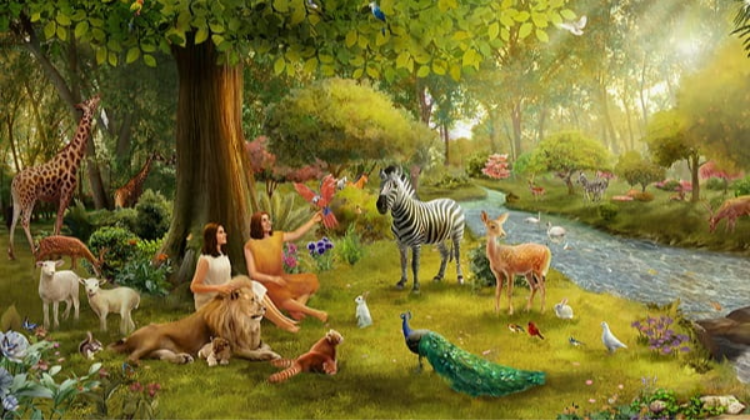

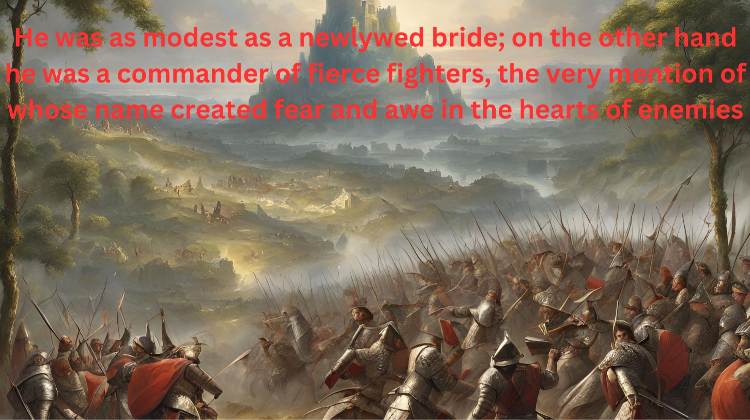
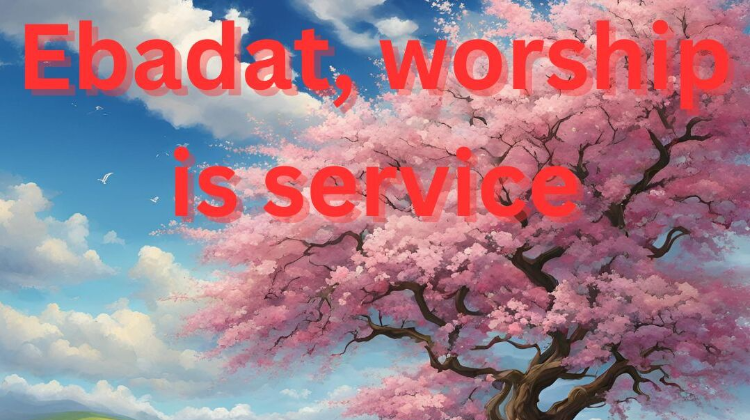
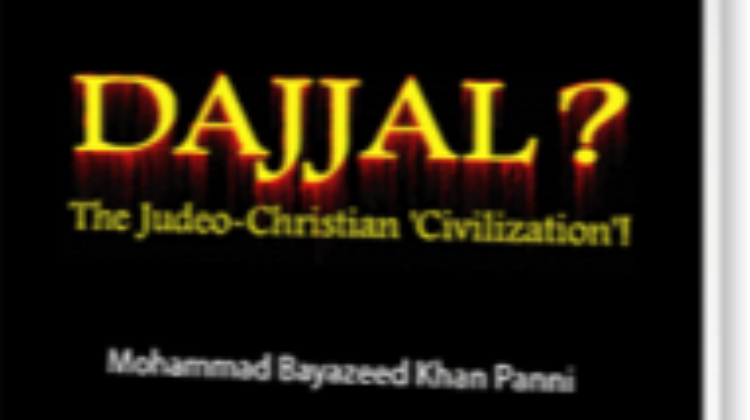
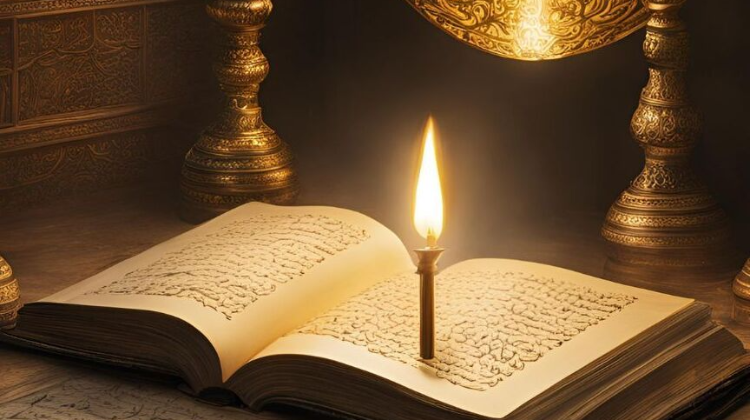
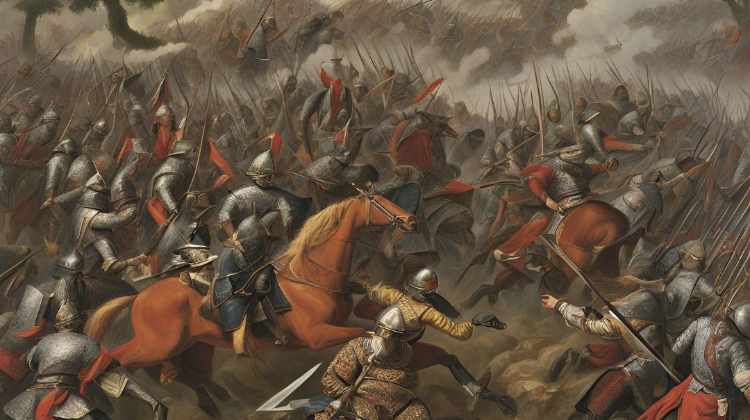
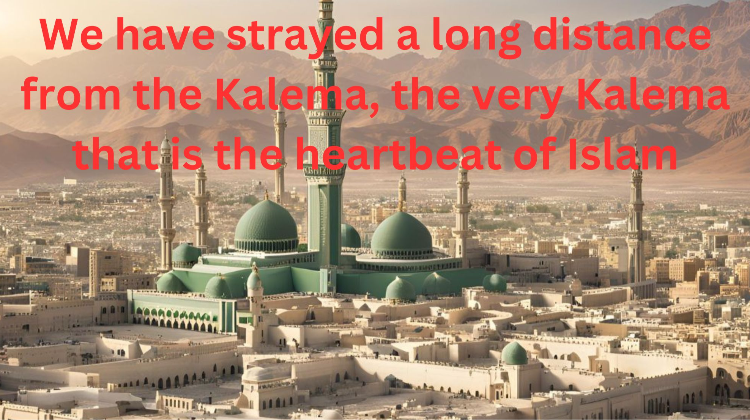
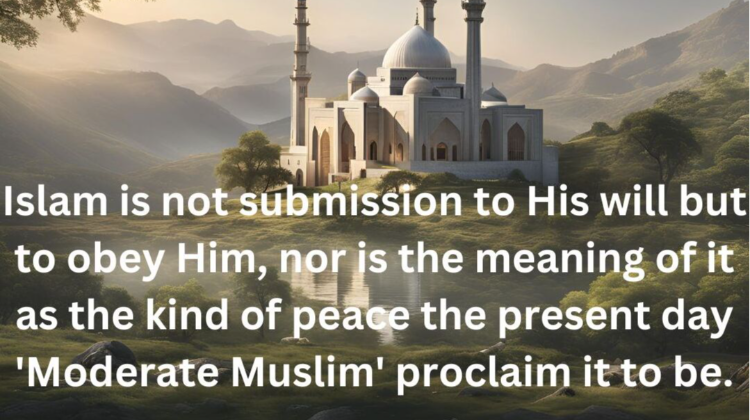
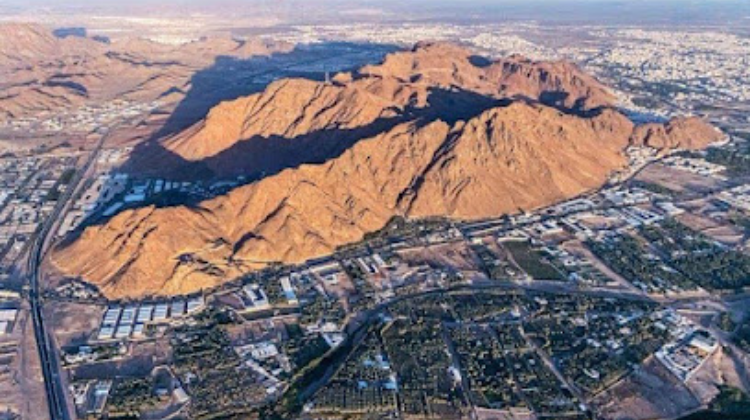
Leave a Comment